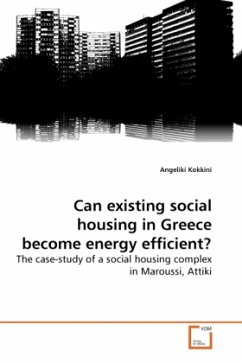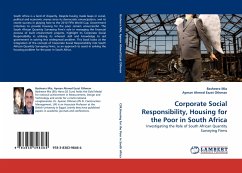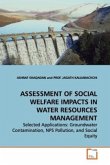There is great potential to reduce energy consumption and greenhouse gases by investing on upgrading the energy performance of the social housing stock. Creating energy-efficient homes and sustainable constructions can contribute significantly to the well-being of citizens, especially the underprivileged ones. Best practice examples of social housing retrofitting in Europe and Greece are reviewed, identifying barriers and prospects for the Greek social housing sector. The case-study of a social housing in Maroussi, Attiki, is used to further examine existing performance and potential strategies for upgrading social housing buildings. Review of relevant studies about the case-study reveals the strong social dimension of social housing retrofitting and provides valuable information from lessons learned .The study assesses the characteristics of the three different building typologies in the complex and examines existing energy performance, based on the synthesis of quantitative (sample monitoring, energy and fuel bills collection, TAS simulation results) and qualitative data (observations, personal interviews with stakeholders).
Bitte wählen Sie Ihr Anliegen aus.
Rechnungen
Retourenschein anfordern
Bestellstatus
Storno








